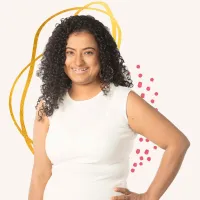The Nerve To Lead Podcast
with Sangheetha Parthasarathy
On The Nerve to Lead podcast, your host, Sangheetha Parthasarathy encourages CEOs, Entrepreneurs, deep thinkers, the round-pegs-in-square-holes, change-makers and visionaries to share their stories of power, pleasure and passion.
We cover everything from nervous system regulation, high achievement, trauma healing, parenting, partnership and attachment, intimacy and more. You will also get to learn the stories and knowledge from our expert guests and thought leaders.
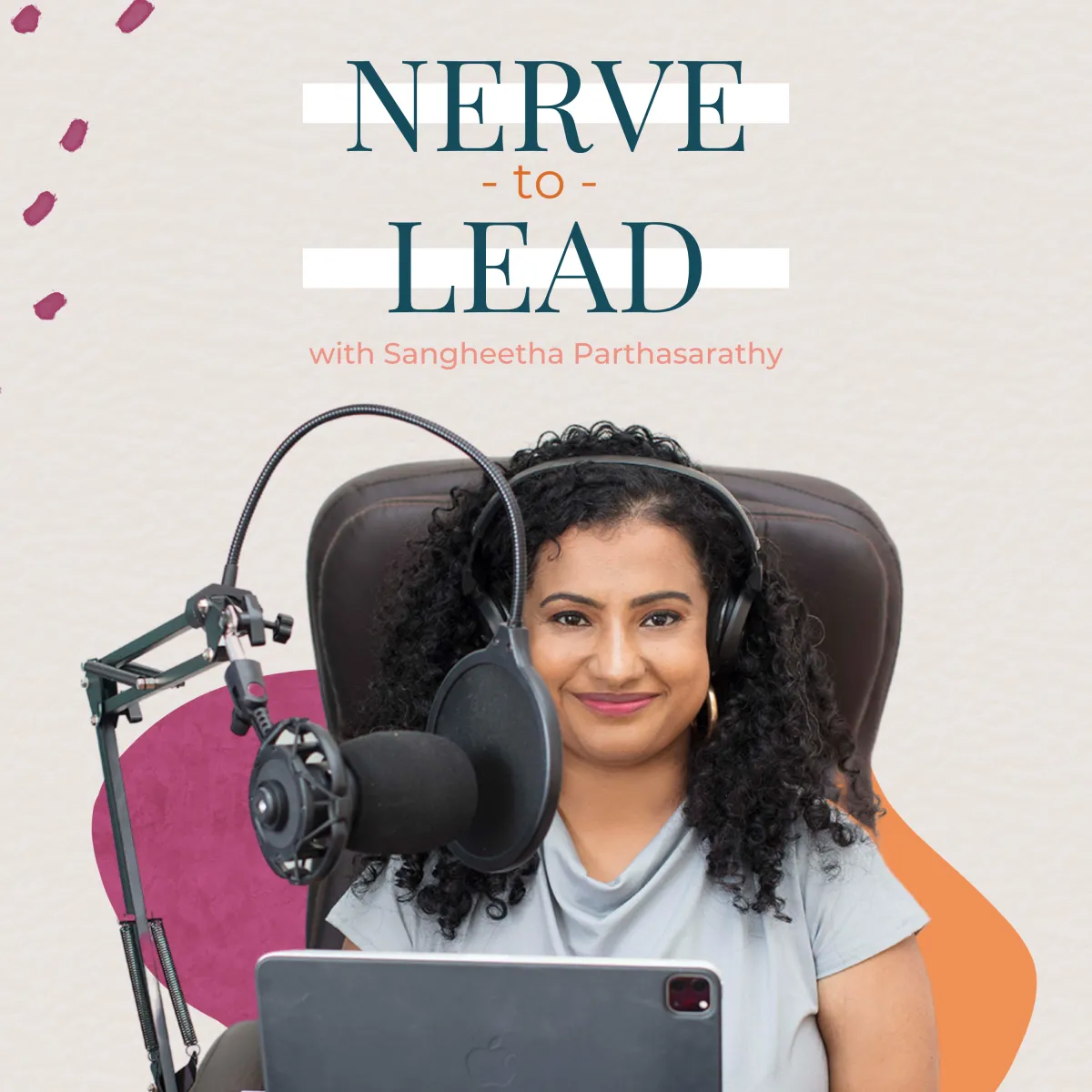
Apply to be a guest on
Nerve to Lead Podcast
Welcome to 'Nerve to Lead' podcast. Apply here to be a guest on the podcast with Sangheetha Parthasarathy.
Invite Sangheetha as a
guest to your podcast
Invite Sangheetha, a Nervous System Coach, Speaker and Consultant to be a guest on your podcast.
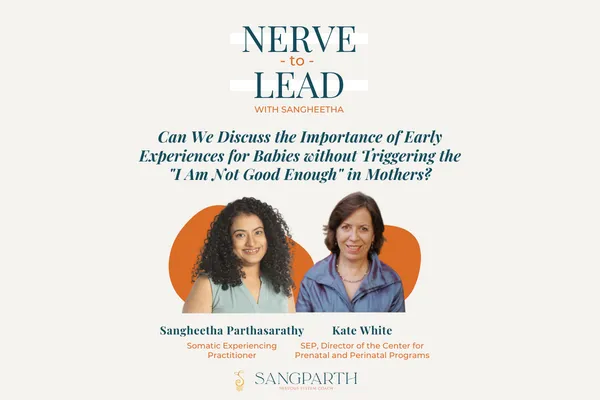
Can We Discuss the Importance of Early Experiences for Babies without Triggering the "I Am Not Good Enough" in Mothers?
In this captivating podcast episode, we are joined by an internationally renowned pre-and perinatal somatic practitioner, Kate White. Prepare to delve into the fascinating world of how our earliest imprints shape our lives. Together, we explore the profound impact of birth experiences and the emotions that mothers often grapple with, such as feelings of fault or the desire to have done better. Additionally, we shed light on leadership within the dynamic field of somatics. Tune in for an eye-opening discussion that promises to leave you with powerful insights and a fresh perspective on personal growth and self-awareness. Don't miss out on this enlightening journey!
We have created an autonomic safety assessment for parents, which helps baseline our co-regulation capacity. You can download and use it here: https://www.sangparth.com/parenting-checklist-form
Thanks to Sound Creed for the music, you can visit them here https://www.youtube.com/@SoundCreedLLP
Curious about the work? Visit www.sangparth.com and book a call https://www.sangparth.com/15min-call
To know more about Kate White visit: https://www.ppncenter.com/
EPISODE TRANSCRIPT:
Welcome to the Nerve to Lead podcast. Here we explore power, pleasure, leadership, identity, belonging, parenting, and couplehood, and explore stories of navigating through life, finding both authenticity and attachment through the common lens of the nervous system. I am your host, Sangheetha Parthasarathy, and I'm so glad you're here.
Sangheetha Parthasarathy: hello and welcome to another episode of I'm super honored to have Kate White with me today. Kate and I have known each other for quite a while. Kate runs pre and perinatal institute. Kate has extensive work in, in utero and early attachment and birth and the impact of birth. She is someone I regard very highly. She's been a mentor, she's been my therapist, she's been a friend. Welcome Kate and so honored to have you here.
Kate White : Yeah. Thank you. Yeah, it's exciting to talk with you Sangheetha so thanks for inviting me.
Sangheetha Parthasarathy: so Kate, Let me start with this question, how does our in utero and birth experiences shape us as adults?
Kate White : Well, that's a really big question, and I have short answers and I have long answers. Maybe I should have the just right answer. I don't know it. but we know that our earliest experiences in life will lay down a foundation, our template. And there are actually ways we can look at that template through, layers or through a lens of trying to decide, okay, where in our sequence of development do we, when we have issues that arise, when do they develop? And what the research has borne out to show us is that a lot of times the things that start in utero don't show up until we are adults, until we are in our twenties or our teens. We also know that how we are parented. So there's an attachment sequence that develops, and that's even preconception. Some of the things that we see in our lives are not even ours. They start in our previous sort of generations. So we're looking at the way we develop in a sequence, in layers of experience and how they gather and often are stacked on top of each other and then they're compressed. So the way we are conceived, like if we're a wanted baby, the things that happen prenatally, if our parent is overly stressed or has a loss of their parent or other important loved one while we're in utero or, some of the dynamics of our placenta and other things and our how our embryo, how we make our body. I mean, those show up as adults, but also as children. And then how we are born all the chemicals used, the compression, the length of birth, how we are in our body if we have intrauterine constraint, can develop, can show influence how we grow. And sometimes, people are not trained to see this, at least not yet, we're getting there. And so as adults we can have like a mental health that's, that doesn't express until we're in our early twenties that's related to how we are born. We can have a variety of depressive or anxiety, or mood disorders that are connected to our health that started in relationship within our family dynamic or our cultural dynamic. And we can have things that haunt us from preconception, from our ancestors. So it's really about pattern recognition. We've learned to be able to see patterns and understand that they have pre and perinatal roots, and we do now have practices in professional education that can help ameliorate, or even extinguish some of the trauma patterns that come from our earliest lives. So that's a very broad stroke. I don't know if that gives you a good enough answer, Sangheetha, so you let me know.
Sangheetha Parthasarathy: Yes, Yes. Absolutely. I think it's fascinating and, and of course like as practitioners, you know, you're at a party and somebody walks in, you look at their head and you're like, oh, caput and oh, I know what happened at your birth, you know?
Kate White : Right, Right.
Sangheetha Parthasarathy: Once you start seeing those patterns and they show up, like you said, when you know what to look for, it's pretty you can tell. So I wanna ask you, what is attachment from a pre-verbal perspective? So this is not widely known. I think when we say attachment, we think it's emotions, we think it's communication, we think it's love in a very narrative, adult sense. Mm-hmm. But can you tell us a little bit about what attachment is from that in utero preverbal before 18 months perspective?
Kate White : Well, yes. Well, attachment, I mean, in the literature, I mean, you read it as attachment styles, right? You read it as well how we're parented or how we parent based on the work of John Bowlby and, Mary Ainsworth and Mary Main, yes. And we know that these styles are biological, and they're not necessarily just an idea. Yes, they are hardwired into our body. So there's attachment, which is how parents are in relationship with their children. Bonding, I think is from the parent's side. Attachment is from the, the child's side. And when we talk about bonding prenatally, it's really encouraging the parent to, see their developing baby as someone who's having experiences and wanting to connect. Cuz we're hardwired to connect and we know that prenatal bonding has really good outcomes. It can decrease the difficulty of births and increase, the level of settling our nervous system regulation or the baby. And for the baby and parent. It can also translate into other things like, how our IQ is developed and some of our linguistics and other things that start with how we make our body and our neurons start firing in utero our neurons get laid down and at a very high rate in utero. we have as many neurons in our body as stars in the galaxy according to Thomas Verney And so, those neurons are collecting information. It's somatic information, it's biological. And so the relationships that we develop with our babies, that can translate into lifelong health starting prenatally. And so we encourage parents to understand their dynamic, their attachment style, and we can test for that. Now we do have these sensitive psychological instruments and help them, really confront and become more aware of their own patterns. It's about, like I said, pattern recognition, trying not to give it any kind of a flavor of bad or good. we do know that there's more desirable patterns and we can encourage, people, humans of every age towards recognition of the health and understanding when patterns are not in service to us and when they can be, just bringing more consciousness and more choice to how we parent and how we live.
Sangheetha Parthasarathy: That's beautiful. Thank you so much. Just building off of what you said, a lot of times when we work with mothers, especially mothers postnatally, and it doesn't matter what age the kid is, the child is, but when we're working with them for nervous system regulation and somatic work a lot of times it brings up a shame around, stress during pregnancy and perhaps not bonding enough. And I know that patriarchy sets women up for unrealistic standards and women to be super women and all of that. And therefore there is a lot of was I a good enough mother that goes on. So would you like to share something with either pregnant women or mothers postnatally, about that?
Kate White : Yeah. Well, first of all, I mean, this is a passionate discussion that I can have. And I do actually have a tough time. Yes. mostly it's my husband who's walking with me, with my dog, who's listening to me. or not maybe But I feel like in our culture, I mean, I'm in the United States, you're in India. I mean, there, we just don't support families very well at this stage of life. And I don't know what we are thinking, like maybe we weren't. but how to create, really good care for families after they have babies. And what you're describing, is a stressed out person, a mother, usually it is a woman who's got to now shift her life. Totally. once she becomes a parent of a baby, becoming a parent of an older child is a little different. But once you are with a newborn, I mean, your life is very much, , dedicated to nurturing that new newborn. And it's sleeping and feeding and it's hard work. Yes. And yes, then, then that her support, where is her support network, if it's her other parent, the husband or the other other partner, and they have to go back to work and maybe she has to go back to work. Yeah. maybe she has to work two jobs in order to make enough money. And what happens to that baby then? And right when the parent gets in, in the squeeze of this, how do I make life happen for my family? And they sacrifice whatever it is, time, sleep, energy, and they, they burn the candle at both ends, so to speak. yes. And I mean, some of the studies I've read is like, if you even just give a new parent money, it translates into lifelong health for that family and that child. And so I think honestly that the problem is cultural and societal in our country. I know it is. It's like how can we create maternity care and maternity maternal and paternal leave, things like that mm-hmm. which our country should be. Cuz our country has so much "money", and I know that there are leadership people who are working on this on the hill. I think both of our political parties, that are so much, and or of polemics these days, everybody agrees maternal health's important. So for the pregnant person who on the everyday, or the mother who's out there listening, I would say take heart because if you feel like you did something wrong or it's on you, that's where I would intervene and just say, that's a stress response or our trauma response and let's talk about it because I know that for having babies, you need support. And if you do not have enough support, that's where things start to break down. So it can be another pair of arms to hold your baby while you make soup or take a shower or even have a nap. or if you have birth trauma and you're not able to rest or sleep, then, this needs to be taken care of and seen. Yeah. And if the baby has birth trauma and is crying or sleeping and feeding is challenging.
Sangheetha Parthasarathy: Oh Yes.
Kate White : We need practitioners that know how to work with that. And that's what I'm doing. I'm training practitioners and I'm really interested in scaling up what I do so that there are more baby body workers out there who can see what's happening for a baby and for a parent. And often I can make a difference in a family with one visit, So Oh, yes. Yeah. So I think that we just are at the beginning, unfortunately. It's interesting how it is now in 2023, the beginning of really integrating what kind of professionals do we need to help mitigate challenges during this time. I think it's just connecting the dots actually.
Sangheetha Parthasarathy: Yeah.
Kate White : The professionals are out there. Yeah.
Sangheetha Parthasarathy: Yeah. No, that is so critical. Just making sense of it from the baby's perspective, but also from the mother's perspective about the birth and if there was trauma involved, for example. Exactly. Like you're saying. And then also I think there's studies that say that, you only need about 30% of attuned, secure attachment behaviors for the brain and body to rewire for secure attachment. Therefore, and this is something I tell all my clients is that you've not messed it up. It's not that it's a done thing, and babies' nervous systems are even more flexible. And so yes. What would you call it? Forgiving?
Kate White : Yes.
Sangheetha Parthasarathy: What, what's the word for it? Forgiving.
Kate White : Yes. Well, babies, babies are very loving and forgiving.
Sangheetha Parthasarathy: Loving And forgiving.
Kate White : Yeah. and you can make repair with a baby, but you baby sitting there thinking I did something wrong, just like you are. I don't know if they have those words, but there is a felt sense of I'm bad, or this was intended this painful thing, therefore I must be bad if I've had this experience. And so, I mean, I can be with parents and just say to both, no, you did nothing wrong. This just happened. Yeah. And that's the way it is. It's a lot of very impersonal, painful things happen at births and prenatally and both parents and baby take it very personally. So you can get in there as a professional and say, no, this, these things just happened. Nothing you did wrong. And suddenly there's a lot of relief in the space. Yeah. And, and sometimes I have to really explain and repeat myself. And the more I do, the more relief and the more, oh my God, I'm not a bad parent. No, no you're not. Yeah. Oh my God, you mean that just happened and not because I was bad or something I did wrong. No, no. It just happened.
Sangheetha Parthasarathy: Yeah. Yeah. Absolutely. Yeah. Thank you so much for sharing that.
Kate White : And now a small break. To talk about more resources, we have created an autonomic safety assessment for parents, which helps baseline our core regulation capacity, which is available for free to download and use. It is available as a link on the episode. Show notes now back to our conversation.
Sangheetha Parthasarathy: Could you share some client approved stories with us of how repairing our earliest in utero or birth trauma, even as adults can create somatically create massive shifts for us. Ok. as adults, like maybe working with them.
Kate White : Alright,I can talk about some themes, let me talk about themes first and I can also talk about myself. yes. Cause I've done all the work, in order to sit here in front of you, Yes. I've been doing this 20, 25 years now. I wanna talk about some major themes of pre and perinatal work. We got here because of our work with adults, it didn't start with recognizing the baby's experience. It started with adults that had, regressive memories. And so for, for them, I mean, claustrophobia was one of the themes that awoke us to the baby's experience. you came into my life when I was working at APPAH, the Association for Pre Perinatal Psychology and Health that was co-founded by David Chamberlain and Thomas Verney. And David Chamberlain was a hypnotherapist and a psychologist and a minister. And it was through his clients that had extreme claustrophobia that when they were hypnotized, went back to the womb, this was often a third trimester imprint and where there isn't enough room and there's no way out. not, at least not at that time. So this is one of the examples I can give you from the adult perspective. Sure. Another, another really painful pattern, which I see quite often is a feeling of belonging.
Sangheetha Parthasarathy: Oh, yes.
Kate White : Yeah. We know that there are nine, I call them the nine positive imprints that are related to our earliest beginnings. And that's, am I safe? Am I protected? Am I seen, felt and heard, therefore understood. am I lovable and, do I belong? And so there's a way that trying to track, what people are feeling, the two others that are in that list, am I wanted and am I welcome? And for those of us who are conceived and were not wanted, that's an imprint. Yes. And many people who, like half of us are conceived, with consciousness. The other half was like, con conception happens, and it's a little bit mistimed like, oh, I wanted a baby. I guess it's gonna have to be now. And then there is a percentage of us that are really conceived and not wanted. And that is difficult to be making your life and your brain and your body and your nervous system in an environment like your parent, like your mother or you're not wanted. And that Right.
Sangheetha Parthasarathy: Or the wrong gender.
Kate White : Yes. Or the wrong gender. Exactly. Which is very common I think, in India. And Yeah. If you are a woman, you made yourself and a parent who's thinking, I hope I have a boy. Yeah. That's very painful. Yes. And then you begin to not to dislike yourself and wherever you go, you're in this imprint of, yes, I'm not wanted. And so the people with that imprint, they'll walk in a room and they'll, their radar is extremely sensitive. So if there's somebody across the room who maybe has a mood because their day is bad for them or they're stressed, we perceive it as somebody rejecting us. And there's also people who are given up or relinquished for adoption. And this is very confusing for the little one. And then as the adult, I mean you can have a wide range of responses and some of those people have big challenges with creating family and feeling home and feeling at home or that they're accepted. I mean, I hope you can get a sense of those of you out there listening, like these places lie in us in a very implicit way and they can be. Yes. And like I have a talk that I give called The Baby is in the Shadow, and our baby parts are still here. They're alive, they're listening, and babies are super sentient, super perceptive. And for those of us who have trauma in the early parts of our lives, that baby part can stay quite alive and quite intense and always be perceiving through that lens of this thing that happened to us.
Sangheetha Parthasarathy: So I'm just the implicit meaning that there is no narrative linear story associated with it, but implicit memory means it is stored as bodily processes, patterns and don't necessarily have a corresponding story, a narrative story behind it. And therefore, a big part of how we come into the world, et cetera, is pre-verbal. That is, if somebody asks you what happened in the first 18 months of your life, we don't know. Because the part called hippocampus that comes online, it develops, it's the part that files the way each memory as narrative. The storage doesn't really come online. That doesn't mean we don't remember it, it's just that the body remembers it not that's with words.
Kate White : Right. The body remembers it. And the body, the body shows it through posture, through gesture, through sensation. And like one of my favorite quotes from the somatic experiencing, teacher Peter Levine, he talks about how the implicit memories will rise and they're hot. They rise quickly. They're like a collage of of sensation. And it's layered quickly upon itself. And the way that we make sense of it is that, well, there must be something in the present that is informing that and we make a story up about it. But the truth of it is it might just really be an implicit layer. Like I said, maybe you did nothing wrong, you were just there. So a lot of times when I'm working with adults, I mean, I have to help them identify their layers of experience and then really get the sense that they are there, who they really are is underneath these layers. And we work to integrate the layers. I use a somatic approach, which is working with sensation and helping them realize their health. Often we have adaptation sequences like if we're not wanted and we have a natural fight or flight, maybe we'll fight or we'll flee. Or we'll have our natural normal responses to the challenges that we've had and helping parent, helping adults get it, oh, this was what I did to survive and we appreciate that. And then use consciousness like, can I choose a different way? Like how do I want to be, so this is what I work with adults. Like how do you want things to be? What is it that you're curious about? How can we employ our consciousness, to choose different things for ourselves and have a different life if that's what we're wanting.
Sangheetha Parthasarathy: Absolutely. Tell us about leadership, I think in this field and in general the role of power and attachment and also leaders in the field of somatic work. You've really created your own body of work, which is amazing. Just tell us about, leadership and, how we show up in the world.
Kate White : Well, first of all, let me take the last sentence that you said. How do we show up in the world? Like I can say that, one of the layers, like those nine positive imprints I talked about is feeling seen. How is it for you to feel seen? And that layer can start preconception, for example, in my history, my family, really prized boys. So women were always sort of considered second choice, not best. And, my father, my grandfather, my mother's father, he wanted boys, but he had four girls, so no boys. And that believe me, that all those girls suffered that. Yes. And then I was born, of course, I'm not a boy. And so, I mean, you can feel the layer, the heaviness of it. Like how is it, can we grow, in culture and family? I mean that already, those are layers, right? Yes. And in our culture where if we're white and male, we excel certainly if you have money. Yeah. So it's, I mean we're already, things are are stacked. You can start to feel the stack, right? Yes. And so in leadership, and in my field of practice is so small still, I mean there aren't a lot of strong leadership development programs. In my field of practice in the United States, there was really only two teachers. And so really developing, leadership tracks, developing provider tracks and practitioner tracks. I mean, these are things that are still, we're still a young profession. so there isn't, there's a lot of room for leadership development for sure. I don't know if that's a good answer for your question, but I feel like it's a combination of like, I liked what you said before we got on the air, how can we develop a nervous system that's capable of power, of building power and feeling, our worth? It's about worth as well. Like can we value ourselves and have endurance and then it's relational. And women tend and befriend as opposed to fight and fight. It depends on lead, right? But Yes, I mean You need to have a, a person who's got a nervous system whose natural tendencies are much more in alignment with what does it take in our country to be a leader? You have to have a certain capacity and resilience and Absolutely fortitude.
Sangheetha Parthasarathy: Absolutely. Yes. And that's the big part of my work is power and helping reckon with power and how we hold it in our bodies and power as an early attachment imprint, but also ability to hold enoughness of power as a nervous system function. Therefore, we, we don't get into those perpetrators savior victim kind of roles and a lot of power ambivalence around, okay, I got here, now I have power, but historically power meant aggression. Therefore this is scary for me to hold
Kate White : well I know that in my, the way I've been trained, the power and peace go together. Yes. But power, in order to get to your, the goodness of your power, you often have to come into connection with annihilation. Cuz those power I find is the quality human essence that underneath an annihilated, layers. And that's a scary layer. There's a lot of terror. Yes. And you have to have capacity to be and move through that terror. And you, so therefore you need a practitioner who has moved through the terror Yes. To pull you through and just believing. And often, well, the way I work with it in adults is I can hear it in what they're sharing.
Sangheetha Parthasarathy: Yes.
Kate White : Cause Somebody will come and say, I really want peace, more peace in my life. Mm-hmm. often the reason why they want the peace is because of some terror or aggression that's been against them, or that they've been in it for a long time and they're tired. Yes. So I'm listening to their sharing and that's one of the other things I would say about working with adults is that they can voice, they do have language. Yes. They can tell you only sometimes you have to listen through the lens of the baby's experience because the stories they tell you, you're listening for, what are those layers? And you can hear it in the words they choose and how they're telling you. And that's the job of the practitioner. Yeah. And that's what I need people to do. Yes. So I think there is a way that we can find leadership, but we have to do it with a benign sovereign approach. But it doesn't mean, I'm not powerful.
Sangheetha Parthasarathy: Mm-hmm. Absolutely. Absolutely. Thank you so very much. How can people find you? tell us a bit more about what do you have in the pipeline, like upcoming courses offering?
Kate White : Well, I have a website that's ppncenter.com, it's the Center for Pre and Perinatal Programs. And right now I'm in the midst of shifting things over to creating an institute where people can come and get a variety of education, from the academic to the body work aspect. And mostly it's the somatic skills and I have an online school. You can find that pre perinatal healing online through the current ppncenter.com. And that's the best way for your listeners to find me.
Sangheetha Parthasarathy: Thank you so very much, Kate. Really appreciate it. Thank you for your time.
Kate White : Well, to be continued Sangheetha, so we'll see you.
Sangheetha Parthasarathy: Yes. Okay, I'll see you soon. Bye.
Thank you for joining me today on Nerve to Lead Podcast. The music you hear in this podcast was created by Sound Creed. You can find the link in the description. Thank you to Vaishnavi in team Sangparth for producing and editing this podcast. Did this episode resonate with you? If it did, please share it with your friends, family, coworkers, or clients. We would also love to hear from you. Drop us a note on www.sangparth.com.
What we offer
Our Areas Of Focus
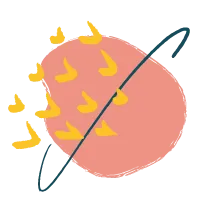
Career, Entrepreneurship& Leadership
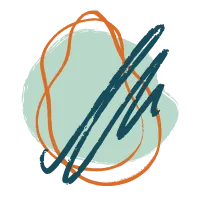
Sex, Relationships
& Parenthood

Eating, Movement &
Body Image

